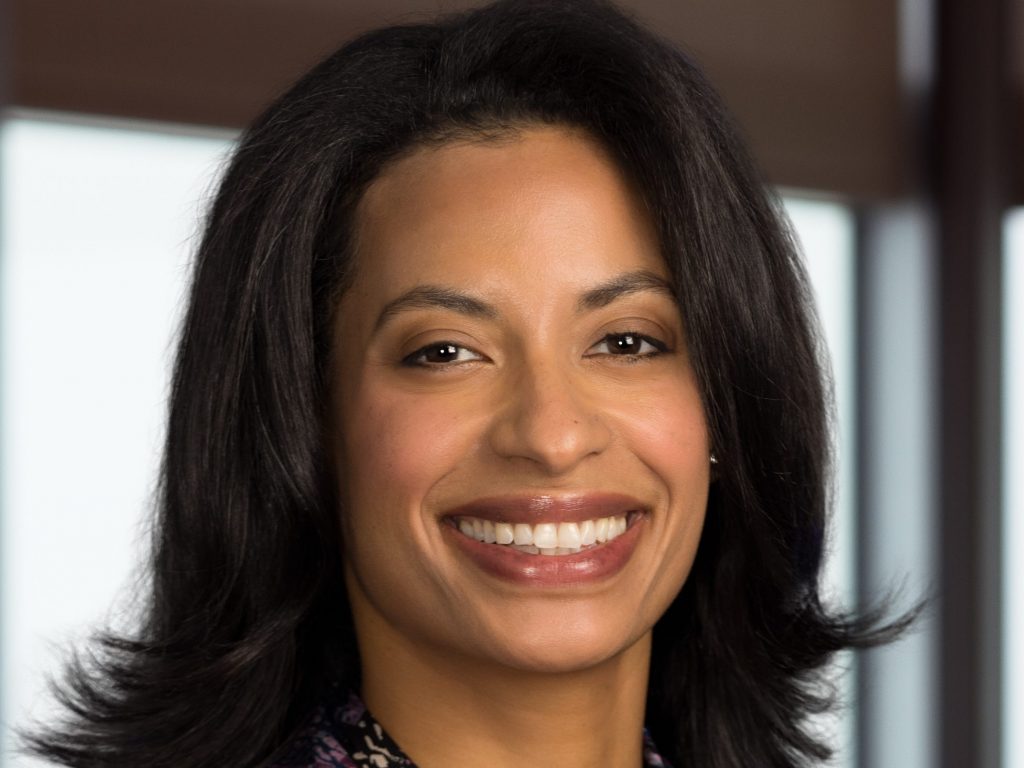
- Goldman Sachs is hosting its second-annual HBCU Market Madness initiative on Wednesday.
- CEO David Solomon is a mentor and judge in the competition.
- In an Equity Talk, Megan Hogan shares how the company hopes to impact HBCUs.
Dozens of top companies gave millions to often-underfunded historically Black colleges and universities in the aftermath of George Floyd's murder. But Megan Hogan, the chief diversity officer at Goldman Sachs, wanted the financial institution to dig deeper than just writing a check.
"There was a lot of lip service being paid to HBCUs, and we wanted to do more," Hogan told Insider. "Accountability can't just be with our own diversity goals, it has to be external as well."
Though the firm has had relationships with HBCUs for over 20 years, Hogan, Goldman CEO David Solomon, and other executives are trying to forge long-lasting relationships with HBCU students and leaders. For Hogan, it's about avoiding cursory, one-time actions and creating consistent allyship.
On Wednesday, the firm is launching its second-annual HBCU Market Madness competition. In addition to a $25 million grant to various HBCUs, Goldman is giving 23 HBCU student finalists from colleges including Howard University, Spelman College, and Florida A&M University the chance to present their business case study to Solomon and other executives. The 23 student finalists, selected from a group of over 100, will present business advice for Goldman client PepsiCo and could be used in real business plans given to the food and beverage company. The finalists will receive grant prizes for their respective colleges of up to $1 million, which is part of the $25 million commitment. The amount given to each student is to be determined, according to Goldman Sachs.
"Investing in the next generation of talent is one of our top priorities because we know having a more diverse workforce strengthens Goldman Sachs," said Goldman chairman and CEO David Solomon. "We still have a long way to go, but we are making progress through programs like Market Madness: HBCU Possibilities that drive results for students, their institutions and their communities."
Goldman is also pairing all of the 100 participating students with bank executives for a 12-week program on the fundamentals of being an analyst. Some will even get opportunities to join the firm in the form of internships, said a company spokesperson.
Hogan cocreated the HBCU Market Madness initiative with Erica Coleman, Goldman's head of diversity recruiting. Hogan was a vice president and managing director at the firm for five years, before taking her post in April 2021. The program is one of several initiatives the firm has underway to meet internal diversity goals. Goldman met or exceeded its 2019 goals for campus recruits in 2020 and welcomed its most diverse managing director class in the firm's history in 2021.
In the latest installment of The Equity Talk, Hogan spoke about the impact she and Solomon are hoping to create, and why being intentional about change in the banking industry is paramount.
This interview has been edited for length and clarity.
How do you hope Goldman's HBCU Market Madness competition will directly impact the participating HBCUs and the larger communities that they serve?
We are very focused on these students applying for internships and full-time roles at the firm. I think we're really proud of the fact that 21 of the students from last year's cohort received offers to work at the firm and are going to be working with us this summer. We hope to see that number increase year over year.
We also know that HBCUs are historically underfunded for the most part compared to the endowments of peer institutions across the United States. So I think the financial impact is there. And then I think, third, it's really about these students being an ambassador going forward for Goldman.
We've seen a wave of donations to HBCUs over the past two years, but how is this initiative different? And how are you measuring impact?
I think we're going beyond just giving the financial capital. We're sharing the intellectual capital of Goldman Sachs, too. More than just writing a check, our executives are investing a lot of time with these students.
Goldman has been influential in setting industry standards for diversity, specifically with board diversity requirements, to take a company public. Talk to me about the importance of intentionality in creating change.
David and our leadership team really think about the triangulation of our goals, accountability, and transparency. It's not enough to do each one of these in a vacuum. It was really important to set goals, to hold ourselves accountable, to diversify the boards of the companies that we take public. We're making sure that our clients, our shareholders, future recruits of Goldman Sachs, and the general public understand what we were doing. We just didn't set the goals, we have been very public and transparent with them as well.
We just witnessed a historic moment in US history with the confirmation of Ketanji Brown Jackson to the Supreme Court. This was, in part, a result of President Joe Biden saying he would nominate a Black woman to the role. How can CEOs take note of leading with intentionality?
President Biden was an incredible example of what it means to be clear on your objectives when it comes to DEI and to take people along the journey. I think CEOs can learn a lot from it. It's similar to David enacting our Board Diversity requirement, with his stated goal of increasing the diversity of Goldman Sachs. We've also been very transparent in our progress. So we keep doubling down on the message, which is transparency is important and accountability is important.
With regards to Ketanji Brown Jackson, it also is about debunking the myth that there isn't diverse talent out there. There is no shortage of a pipeline. I can tell you as a person who was an attorney myself for eight years before I came to Goldman, I was surrounded by Ketanji Brown Jacksons; brilliant Black women who were leading in their law firms and pro bono organizations as judges as well on lower courts. She's an example of being one of the first, but she's certainly not going to be the last.
The banking industry has a long and complicated history with racism. How are you avoiding performative diversity?
I'm really proud of the fact that Goldman took a lot of time and investment in our Black Womenomics Report, which looked at the 90% pay gap between Black women and white men. We looked into the factors, from morbidity rates of Black women to lack of childcare to increasing costs of education to lack of opportunity to the difficulty in taking out loans for small businesses. We did a lot of research, and certainly our conversations could have stopped there.
But we didn't, we took ownership of that to say, we wanted to use our intellectual and financial capital to be part of the solution. Last year, we kicked off our One Million Black Women initiative, which is a $10 billion investment initiative and a $100 million philanthropic investment to deal with all of those challenges for the life cycle of Black women and to narrow that equity gap.
From a personal perspective, it was important for me because, quite candidly, I think there's a narrative in the mainstream that Black women should constantly be martyrs. And I don't think that's fair.
My mom worked two jobs to get me through private school and through college. It was great that she took on that burden because that's obviously how I got to where I am, but she shouldn't have had to go through such great sacrifices to get there. Society should be connecting Black women with more opportunity. And what Goldman is doing to narrow this equity gap is that we're not just in check-writing mode, we're trying to solve big challenges in society.

